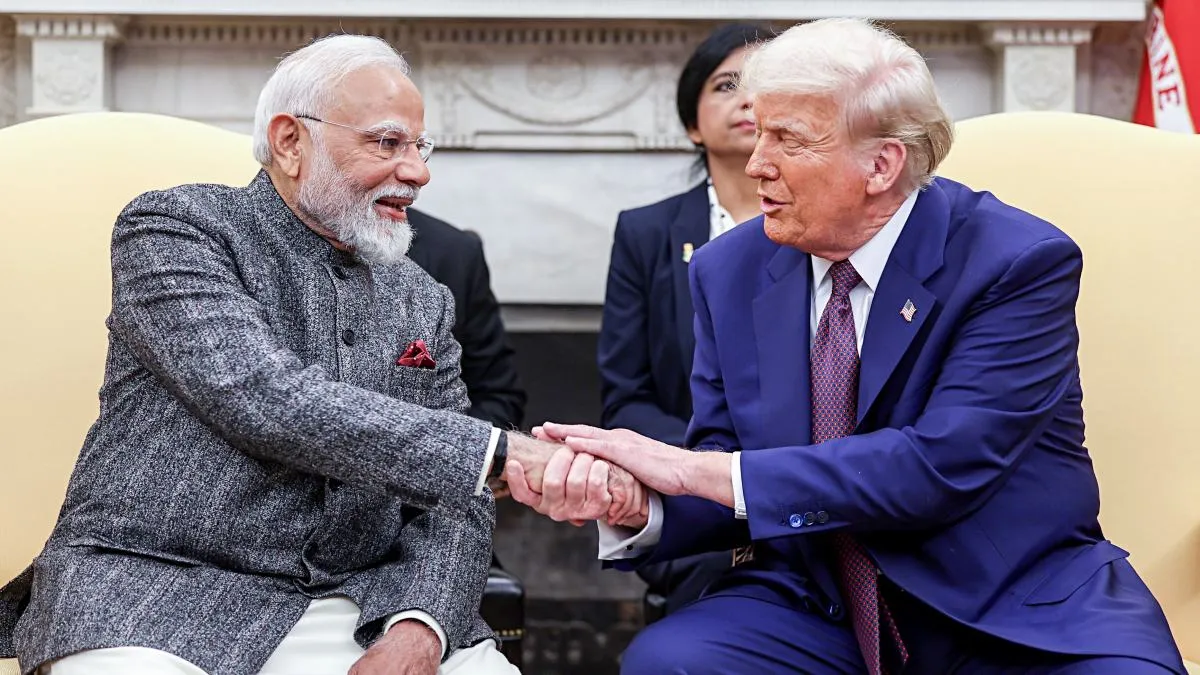- By Akanksha Verma
- Fri, 14 Feb 2025 08:59 PM (IST)
- Source:JND
Prime Minister Narendra Modi and US President Donald Trump on Thursday reaffirmed their commitment to advancing civil nuclear cooperation between the two nations. Both leaders agreed to move forward with plans for US-designed nuclear reactors in India through localisation and potential technology transfer.
The India-US Civil Nuclear Deal, has been a crucial agreement which paved the way for enhanced strategic cooperation, particularly in the fields of high technology and defense, by allowing civil nuclear trade and collaboration between India and the US.
The foundation of the deal was laid in July 2005, following a meeting between then prime minister Manmohan Singh and US president George W Bush. The agreement, also known as the 123 Agreement, was aimed at enabling full-fledged civil nuclear energy cooperation between the two countries. It was expected to allow the US to share civilian nuclear technology and material with India, despite India's status as a non-signatory of the Non-Proliferation Treaty (NPT).
After three years of extensive negotiations and diplomatic efforts, the deal was finalised in 2008. It marked a significant departure from previous US policies, which had imposed strict restrictions on nuclear trade with India following its nuclear tests in 1974 and 1998.
India-US Civil Nuclear Deal Key Provisions
- The agreement facilitates collaboration in nuclear technology, fuel supply, and the establishment of nuclear power plants in India.
- India agreed to separate its civilian and military nuclear programs and place its civilian nuclear facilities under the supervision of the International Atomic Energy Agency (IAEA).
- The US agreed to provide fuel supplies to Indian nuclear reactors, ensuring energy security.
- The deal allowed for technology transfer and the possible development of nuclear reactors in India by US companies.
- It strengthened Indo-US ties, enabling cooperation in defense, space, and high-tech sectors.
Challenges To India-US Civil Nuclear Deal
India's Civil Liability for Nuclear Damage Act (CLNDA), 2010, requires suppliers to be held accountable for damages caused by nuclear accidents, which deterred American nuclear firms like General Electric and Westinghouse from investing in India. Further, India's Atomic Energy Act of 1962 restricted private sector investments in nuclear power, limiting foreign participation.
The deal was also met with opposition from various international players, including China and Pakistan, who viewed it as a strategic advantage for India.
To address past hurdles, India announced amendments to the Atomic Energy Act and CLNDA in its latest Union Budget. These amendments aim to resolve liability concerns and allow private sector participation in nuclear energy projects.
The US recently lifted restrictions on key Indian nuclear institutions such as Bhabha Atomic Research Centre (BARC) and Indira Gandhi Atomic Research Centre (IGCAR), signaling a renewed push for collaboration.
While challenges to the India-US Civil Nuclear Deal remain, recent policy shifts and commitments from both sides indicate renewed momentum in civil nuclear cooperation. If successfully implemented, the deal could significantly enhance India's energy security, boost technological advancements, and solidify its position as a global nuclear power.


